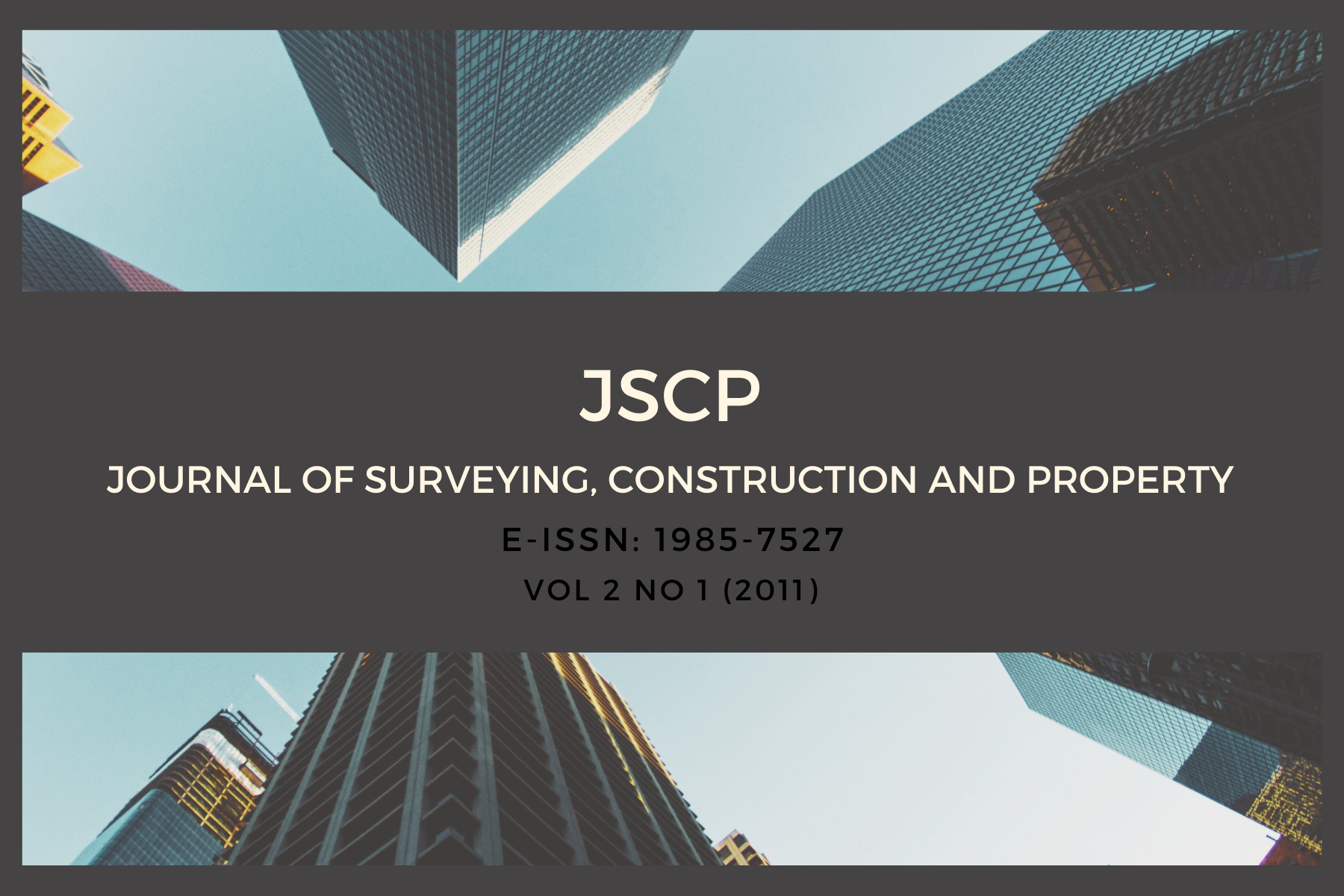Effect of Fiscal Policy on Nigerian Construction Sector
DOI:
https://doi.org/10.22452/jscp.vol2no1.1Keywords:
Construction sector, Fiscal policy, Govermenmt spending, Nigeria, TaxationAbstract
Fiscal policy aims to boost demand and output in the economy either directly, through greater government expenditures or indirectly through tax reductions that stimulate private consumption and investment spending. The aim of this project research is to assess the effect of fiscal policy on construction works in Nigeria. Data for the study was obtained through historical data of past Lagos State Government budgets with respect to taxation, government spending and capital spending from the year 1980-2006. The data was presented and analyzed using tables, Pearson moment correlation coefficient(r) and regression analysis. Past budgets of the government was analyzed using the values of taxation, government spending and government spending on construction works (capital spending) as the major variables. The study confirmed that there is significant relationship between the three variables. However, it revealed that combined effect of taxation and government spending on construction sector in Lagos state has a very high and positive effect. The study finally recommended that there should be consistency in policy making by the government in order to influence the level of aggregate demand in the economy in an effort to achieve economic objectives of prices stability of building materials, full employment of labours and economic growth. It was also recommended that taxes such as VAT, custom and exercise duties, road rolls, petrol duties, wages tax, rent tax, interest tax, and profit tax should be reduced so that disposable income of individual would be increased and stable in order to improve investment in construction work.
Keywords: Construction sector; Fiscal policy; Govermenmt spending; Nigeria; Taxation.
Downloads
Downloads
Published
How to Cite
Issue
Section
License
COPYRIGHT: All rights reserved. No part of this journal may be reproduced, copied, or transmitted in any form or by any means—electronic, mechanical, photocopying, recording, or otherwise without proper written permission from the publisher. Any opinions expressed in the articles are those of the authors and do not necessarily reflect the views of the Universiti Malaya, 50603 Kuala Lumpur, Malaysia.







